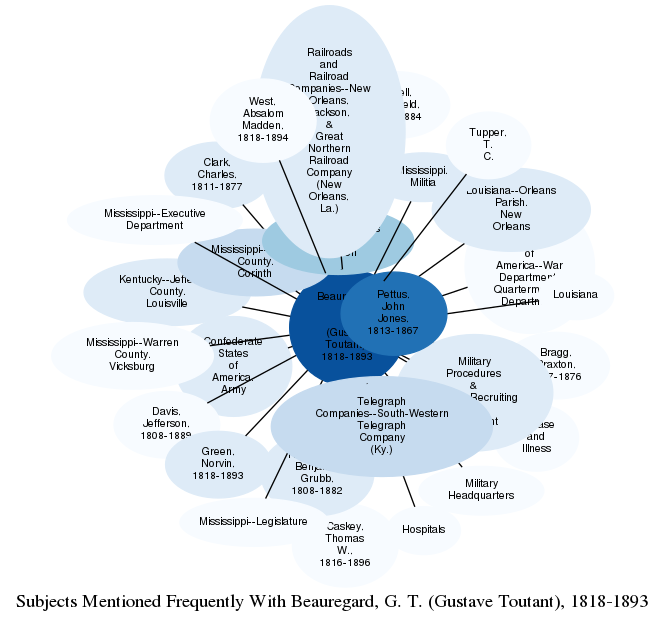Description
Related Subjects

The graph displays the other subjects mentioned on the same pages as the subject "Beauregard, G. T. (Gustave Toutant), 1818-1893". If the same subject occurs on a page with "Beauregard, G. T. (Gustave Toutant), 1818-1893" more than once, it appears closer to "Beauregard, G. T. (Gustave Toutant), 1818-1893" on the graph, and is colored in a darker shade. The closer a subject is to the center, the more "related" the subjects are.